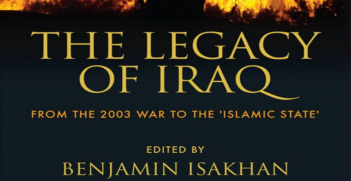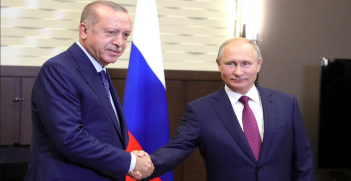Syria’s De Facto Leader Faces Home Truths

It was only a matter of time until the Haya’t Tahrir al-Sham (HTS) gunmen of Syria’s post-Assad interim government took into their own hands violence against non-Sunni Muslims.
Reports emerged early on 9 March about large scale round ups, home invasions, and subsequent street executions of Alawite Syrians. On 6 and 7 March, over 1000 Alawis members of the former ruling Alawite sect (a schismatic branch of Shia Islam) were, according to the Syrian Observatory for Human Rights, executed by HTS fighters and associated Sunni Muslim gunmen, including foreign fighters. This took place in the Alawi heartland of Syria’s Latakia and Tartous governorates. The International Committee of the Red Cross has called for access to allow medical and humanitarian relief to be given to the survivors. Since then, there has been widening concern and among minorities in Syria reflected in the flight by several thousand Alawites to nearby Lebanon.
The scale and nature of the execution of Alawites are reminiscent of the largescale murders carried out by the Islamic State in the Levant (ISIL) during its insurgency in Iraq and Syria. Witness reports say that the HTS-led executions were carried out by both Syrian militiamen and foreign fighters who are now again revealing their religious extremism.
Looting of homes, workplaces, and shops added to the violent mayhem which Syria’s de facto leader Abu Mohammed al-Jolani, known as Ahmed al-Sharaa, now has to stop and punish militants in order to at least be able to say that his path is towards peace and inclusion. He and his Cabinet, some three weeks after the killings, have yet to take material measures to discipline and disarm those persons and groups who perpetrated them. But he simply urged fighters not to abuse people. Notably, he has blamed former regime fighters for starting the incident, which spread over a wide area along with fighters “unaffiliated” with the interim government. Kuwait and Bahrain support the Syrian regime and blame pro-Assad elements while the United Nations publicly appeared disturbed by the fighting and called for such acts to halt.
The Syrian civil war may have begun with public discontent with the Bashar al-Assad regime, its corruption, and egotistic violence of those military, police, and other officials allowed to carry it out. It was not long until Sunni jihadists turned towards Syria from Iraq bringing weapons and a religious war against the Alawite regime. There is little doubt that Sunni Muslim fighters wanted to crush the Alawites and command the country. The post-2004 Iraq insurgency, except for a few cases of inter-sectarian Muslim co-operation against foreign Coalition forces, increasingly split along sectarian lines. Attacks against civilians, shrines, notables, and the formation of self-defence and aggressive militias were almost all Sunni Muslims against Shia Muslims. Ahmed al-Sharaa, who was part of this Iraqi insurgency, went to gaol and then to Syria to continue the war against non-Sunnis.
The post-2011 Libyan revolution situation is being repeated in Syria. Disarmament, demobilisation, and reintegration faces a grave and likely violent path. Most of Syria’s 60 to 70 armed groups will want enrichment from the barrel of a gun before even considering loss of independence and bargaining power by agreeing with the Ahmed al-Sharaa to merge into what will be a factionalised and unsettled new Syrian army.
Any national reconciliation process cannot advance while non-Sunni Muslim religious sects face terror and extortion. Post-conquest retribution and expropriation—that is, murder, theft of property, and kidnapping and enslavement—in Syria will surely follow what now is the expected path just as it did in Yemen, Libya, regions of Iraq, Sudan, and under Iraqi direction in Kuwait and Iraq’s Kurdish areas.
The West is in a bind. Early remarks to Syria’s leadership by several European Union leaders conditioned aid assistance on adherence to and implementation of a long list of governance principles and methods, some more specific than respect for and inclusion of minorities, unity of Syria, commitments against terrorism, and neighbourly peacefulness. From early January, there were calls to remove global terrorist listings against HTS and its leaders to assist aid delivery and political interaction. The United Kingdom has lifted a number of financial blocks and sanctions to assist Syria’s economic recovery. However, terrorism specific de-listings cannot reasonably go ahead unless Syria’s leaders begin to make transparent the internal situation and work against violence.
The United States has stalled aid which reduces the West’s internal and external leverage over Syrian regime management and progressive emergence of civil society. The US aid freeze, and possibly permanent cuts, also threaten the ability of Kurdish Syrian Democratic Forces (SDF) to maintain guard over dozens of camps holding, among displaced persons, ISIL captives and their civilian supporters. HTS fighters may well try to storm camps to release former colleagues and their families. Such attacks have taken place before in 2022. The SDF itself faces pressure from Türkiye and now has an initial agreement with the HTS to join in discussions about the future situation for Syrian Kurds. There will be those within the HTS regime in Damascus who see Syria’s Kurds as an obstacle to its state control rather than a social component with which a durable modus vivendi must be reached.
The Alawite killings were after Ahmed al-Sharaa had moved quickly to carry out a so-called National Dialogue, which had a goal of demonstrating the new regime’s intent to create a unified and inclusive Syria. This rushed move was also botched with relatively wide but rapid, unprepared consultations prior to a National Dialogue Conference of 600 delegates over a single two-day session ending on 25 February. This pace and depth were not adequate for a split society to find a path ahead after 14 years of violent civil war. Views on its effectiveness were split. The dialogue process will need to be revisited and reinforced as a further action to generate any sense of future security for Syrian minorities.
Abu Mohammed al-Jolani, the former al-Qaida extremist, now sees real evidence he exists in a jungle and that his own predators need to be controlled. He may not be able to do this by disarming his militant fighters, still keen to extract revenge, nor by assault against possible Assad loyalists. His main path is to outrun these groups by use of real inclusion of all Syrians in the hope of a safer and secure future while demonstrating, where he can, an ability to suppress and divert violence by previously useful but now so called “unaffiliated” Sunni extremists.
Philip Eliason is a former Australian diplomat, and has worked in Yemen, Libya and Tunisia on UK, EU. He has also worked on USAID funded justice sector reform, political dialogue, and constitutional development programs. In 2017-18 he was the Australian Foreign Minister Julie Bishop’s Senior Advisor on MENA, Africa and International Security.
This article is published under a Creative Commons License and may be republished with attribution.





